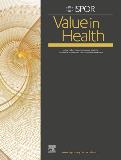
Real-world evidence on treatment outcomes can be an important aspect of the evidence basis for decision making if it is seen as credible. For real-world studies that are meant to test hypotheses about comparative-effectiveness or safety, a key aspect of credibility is that they are conducted transparently with tests that follow a prespecified analytic protocol. Preregistration of such study protocols on a public website would help build trust that their results can be used for decision-making purposes.
Establishing a Culture of Transparency for Real-World Evidence Studies...
The Real-World Evidence Transparency Initiative Partnership is a joint collaboration and ongoing effort between ISPOR, the International Society for Pharmacoepidemiology, the Duke-Margolis Center for Health Policy, and the National Pharmaceutical Council. The objective of this initiative is to establish a culture of transparency for study analysis and reporting of hypothesis evaluating real-world evidence studies on treatment effects.
Improving Transparency to Build Trust...
 The Real-World Evidence Transparency Initiative published a plan to encourage routine registration of noninterventional real-world evidence studies used to evaluate treatment effects. The report, “Improving Transparency to Build Trust in Real-World Secondary Data Studies for Hypothesis Testing—Why, What, and How: Recommendations and a Road Map from the Real-World Evidence Transparency Initiative,”
was published in the September 2020 issue of Value in Health.
The Real-World Evidence Transparency Initiative published a plan to encourage routine registration of noninterventional real-world evidence studies used to evaluate treatment effects. The report, “Improving Transparency to Build Trust in Real-World Secondary Data Studies for Hypothesis Testing—Why, What, and How: Recommendations and a Road Map from the Real-World Evidence Transparency Initiative,”
was published in the September 2020 issue of Value in Health.
More...
The report, “Improving Transparency to Build Trust in Real-World Secondary Data Studies for Hypothesis Testing—Why, What, and How: Recommendations and a Road Map from the Real-World Evidence Transparency Initiative,” was published in the September 2020 issue of Value in Health. The plan includes specifying the rationale for registering hypothesis-evaluating treatment effectiveness real-world evidence studies, the studies that should be registered, where and when these studies should be registered, how and when analytic deviations from protocols should be reported, how and when to publish results, and incentives to encourage registration.
Real-World Evidence Registry
The Real-World Evidence Registry provides researchers with a fit-for-purpose platform to register their study designs before they begin work to facilitate the transparency needed to elevate the trust in the study results.
More...
Real-world evidence studies can be used for hypothesis evaluation of treatment effects including safety (HETE studies). However these studies can also be perceived as less rigorous than clinical trials especially when not preregistered in a public setting such as ClinicalTrials.gov or the EU-PAS register.
ISPOR and its partners ISPE, NPC, and Duke Margolis have developed a simplified registration site especially for RWE HETE studies using secondary data. This searchable site provides a place for preregistration of studies that may not require registration for regulatory purposes but benefit from the rigor of transparent study methods and also provide a reference (such as a URL or doi) to share with peer reviewers, assessors, or other decision making bodies. Researchers can get started ‘here’ by creating a profile on the Open Sciences Framework and registering their study on the RWE Registry.
Shaking the Myth of Real-World Evidence
On-Demand Webinar
Learn more by watching the on-demand webinar, “Shaking the Myth of Real-World Evidence: Updates from the RWE Transparency Initiative.” This session provides updates from the initiative including a walk-through of the study registration site and updates on the special task force developing a standardized RWE protocol template.
Additional Resources
- Real-World Evidence Registry
 Good Practices Reports and Other ISPOR Reports from Value in Health
Good Practices Reports and Other ISPOR Reports from Value in Health
- HARmonized Protocol Template to Enhance Reproducibility of Hypothesis Evaluating Real-World Evidence Studies on Treatment Effects: A Good Practices Report of a Joint ISPE/ISPOR Task Force
- "Improving Transparency to Build Trust in Real-World Secondary Data Studies for Hypothesis Testing—Why, What, and How: Recommendations and a Road Map from the Real-World Evidence Transparency Initiative"
- "Good Practices for Real-World Data Studies of Treatment and/or Comparative Effectiveness"
- "Reporting to Improve Reproducibility and Facilitate Validity Assessment for Healthcare Database Studies V1.0"
- "Unlocking the Promise of Real-World Evidence" (Value & Outcomes Spotlight, Vol. 6, No. 5)
- ISPOR's Real-World Evidence Strategic Initiatives
Conferences & Summits

November 9, 2025
<div><p><strong data-start="107" data-end="197">Apply causal inference and estimands to improve real-world evidence and trial analyses</strong></p><p data-start="199" data-end="609">This introductory course is designed for researchers, analysts, and decision makers involved in health technology assessment (HTA), regulatory science, and evidence-based healthcare. The course explores how causal inference methods and appropriate estimands can improve the design and interpretation of both real-world studies and clinical trials—especially when addressing treatment switching or other biases.</p><p data-start="611" data-end="640"><strong data-start="611" data-end="640">Technical topics include:</strong></p><ul data-start="642" data-end="1275"><li data-start="642" data-end="766"><p data-start="644" data-end="766">Introduction to causal principles, including causal diagrams (directed acyclic graphs; DAGs) and target trial emulation.</p></li><li data-start="767" data-end="902"><p data-start="769" data-end="902">Common sources of bias in observational studies and trials (e.g., time-zero bias, immortal time bias) and strategies to avoid them.</p></li><li data-start="903" data-end="999"><p data-start="905" data-end="999">Causal methods for baseline confounding (e.g., multivariable regression, propensity scores).</p></li><li data-start="1000" data-end="1136"><p data-start="1002" data-end="1136">Methods for time-varying confounding (e.g., g-formula, marginal structural models, inverse probability weighting, and g-estimation).</p></li><li data-start="1137" data-end="1275"><p data-start="1139" data-end="1275">Selection and definition of appropriate estimands to directly address decision problems, including in trials with treatment switching.</p></li></ul><p data-start="1277" data-end="1364"><strong data-start="1277" data-end="1364">This course includes tools and concepts that can be immediately applied, including:</strong></p><ul data-start="1366" data-end="1667"><li data-start="1366" data-end="1469"><p data-start="1368" data-end="1469">Real-world case examples from HTA, such as external control arms and treatment-switching scenarios.</p></li><li data-start="1470" data-end="1562"><p data-start="1472" data-end="1562">Practical guidance on selecting and implementing causal inference methods and estimands.</p></li><li data-start="1563" data-end="1667"><p data-start="1565" data-end="1667">Discussion of current perspectives from HTA agencies, including acceptance and barriers to adoption.</p></li></ul><div>The target audience includes all stakeholders and researchers from all fields in health and healthcare.</div><div><br /></div><div><strong>PREREQUISITE: </strong>Students are expected to have a basic knowledge in epidemiologic studies and methods (including the concept of confounding).</div><div><p> </p></div><h5></h5></div><p><a class="button primary" href="/conferences-education/conferences/past-conferences/ispor-europe-2025">Register Here</a></p><p>*Conference attendance is not required to attend an ISPOR Short Course. Separate registration is required for conference attendees.</p><p><strong>LEVEL: </strong>Experienced<br /><strong>TRACK: </strong>Real World Data & Information Systems<strong><br /><strong>HEOR Key Competency:</strong></strong> 5.2 Economic Analysis Alongside Clinical Trials</p><p><strong>FACULTY MEMBERS</strong><strong></strong></p><div><strong fontscheme="2">Uwe Siebert, MD, MPH, MSc, ScD</strong></div><div>Professor of Public Health, Medical Decision Making and Health Technology Assessment</div><div>UMIT TIROL - University for Health Sciences and Technology</div><div>Hall in Tirol, Austria, and </div><div>Harvard Chan School of Public Health Boston, MA, USA</div><div fontscheme-block="2"><br /></div><div><strong fontscheme="2">Felicitas Kühne, MSc</strong></div><div>Manager Outcomes Research</div><div>Health & Value Germany </div><div>Pfizer Pharma GmbH</div><div>Berlin, Germany and</div><div>Senior Scientist & Deputy Coordinator, Program Causal Inference</div><div>UMIT TIROL - University for Health Sciences</div><div>Medical Informatics and Technology</div><div>Innsbruck, Austria</div><div fontscheme-block="2"><br /></div><div><strong fontscheme="2">Nicholas Latimer, MSc, PhD</strong></div><div>Professor of Health Economics</div><div>SCHARR, University of Sheffield</div><div>Sheffield, Derbyshire, Great Britain and</div><div>Analyst</div><div>Delta Hat Limited, Powered by Petauri</div><div>Nottingham, UK</div><p> </p><div></div><div></div><div></div><div></div><div><div></div><p><strong style="background-color:transparent;color:inherit;font-size:inherit;text-align:inherit;text-transform:inherit;word-spacing:normal;caret-color:auto;white-space:inherit;">Schedule</strong><strong style="background-color:transparent;color:inherit;font-size:inherit;text-align:inherit;text-transform:inherit;word-spacing:normal;caret-color:auto;white-space:inherit;">:</strong></p><p><strong>LENGTH:</strong> 4 Hours | Course runs 1 day</p></div><div><p><strong><strong>Sunday, 9 November 2025 | Course runs 1 Day<br /></strong></strong>13:00-17:00 Central European Time (CET)</p></div><strong><h5><a class="button primary" href="/conferences-education/conferences/past-conferences/ispor-europe-2025">REGISTER HERE</a></h5></strong> <p>*Conference attendance is not required to attend an ISPOR Short Course. Separate registration is required for conference attendees.</p><strong></strong><p><a target="_blank" href="/conferences-education/conferences/past-conferences/ispor-europe-2025">Visit the ISPOR Europe 2025 Program page to view all short courses offered.</a></p><strong></strong><p><a href="/education-training/short-courses">Back to all short courses</a></p><strong><p><br /></p></strong>)
Short Courses & Webinars

November 9, 2025
<div><p><strong data-start="107" data-end="197">Apply causal inference and estimands to improve real-world evidence and trial analyses</strong></p><p data-start="199" data-end="609">This introductory course is designed for researchers, analysts, and decision makers involved in health technology assessment (HTA), regulatory science, and evidence-based healthcare. The course explores how causal inference methods and appropriate estimands can improve the design and interpretation of both real-world studies and clinical trials—especially when addressing treatment switching or other biases.</p><p data-start="611" data-end="640"><strong data-start="611" data-end="640">Technical topics include:</strong></p><ul data-start="642" data-end="1275"><li data-start="642" data-end="766"><p data-start="644" data-end="766">Introduction to causal principles, including causal diagrams (directed acyclic graphs; DAGs) and target trial emulation.</p></li><li data-start="767" data-end="902"><p data-start="769" data-end="902">Common sources of bias in observational studies and trials (e.g., time-zero bias, immortal time bias) and strategies to avoid them.</p></li><li data-start="903" data-end="999"><p data-start="905" data-end="999">Causal methods for baseline confounding (e.g., multivariable regression, propensity scores).</p></li><li data-start="1000" data-end="1136"><p data-start="1002" data-end="1136">Methods for time-varying confounding (e.g., g-formula, marginal structural models, inverse probability weighting, and g-estimation).</p></li><li data-start="1137" data-end="1275"><p data-start="1139" data-end="1275">Selection and definition of appropriate estimands to directly address decision problems, including in trials with treatment switching.</p></li></ul><p data-start="1277" data-end="1364"><strong data-start="1277" data-end="1364">This course includes tools and concepts that can be immediately applied, including:</strong></p><ul data-start="1366" data-end="1667"><li data-start="1366" data-end="1469"><p data-start="1368" data-end="1469">Real-world case examples from HTA, such as external control arms and treatment-switching scenarios.</p></li><li data-start="1470" data-end="1562"><p data-start="1472" data-end="1562">Practical guidance on selecting and implementing causal inference methods and estimands.</p></li><li data-start="1563" data-end="1667"><p data-start="1565" data-end="1667">Discussion of current perspectives from HTA agencies, including acceptance and barriers to adoption.</p></li></ul><div>The target audience includes all stakeholders and researchers from all fields in health and healthcare.</div><div><br /></div><div><strong>PREREQUISITE: </strong>Students are expected to have a basic knowledge in epidemiologic studies and methods (including the concept of confounding).</div><div><p> </p></div><h5></h5></div><p><a class="button primary" href="/conferences-education/conferences/past-conferences/ispor-europe-2025">Register Here</a></p><p>*Conference attendance is not required to attend an ISPOR Short Course. Separate registration is required for conference attendees.</p><p><strong>LEVEL: </strong>Experienced<br /><strong>TRACK: </strong>Real World Data & Information Systems<strong><br /><strong>HEOR Key Competency:</strong></strong> 5.2 Economic Analysis Alongside Clinical Trials</p><p><strong>FACULTY MEMBERS</strong><strong></strong></p><div><strong fontscheme="2">Uwe Siebert, MD, MPH, MSc, ScD</strong></div><div>Professor of Public Health, Medical Decision Making and Health Technology Assessment</div><div>UMIT TIROL - University for Health Sciences and Technology</div><div>Hall in Tirol, Austria, and </div><div>Harvard Chan School of Public Health Boston, MA, USA</div><div fontscheme-block="2"><br /></div><div><strong fontscheme="2">Felicitas Kühne, MSc</strong></div><div>Manager Outcomes Research</div><div>Health & Value Germany </div><div>Pfizer Pharma GmbH</div><div>Berlin, Germany and</div><div>Senior Scientist & Deputy Coordinator, Program Causal Inference</div><div>UMIT TIROL - University for Health Sciences</div><div>Medical Informatics and Technology</div><div>Innsbruck, Austria</div><div fontscheme-block="2"><br /></div><div><strong fontscheme="2">Nicholas Latimer, MSc, PhD</strong></div><div>Professor of Health Economics</div><div>SCHARR, University of Sheffield</div><div>Sheffield, Derbyshire, Great Britain and</div><div>Analyst</div><div>Delta Hat Limited, Powered by Petauri</div><div>Nottingham, UK</div><p> </p><div></div><div></div><div></div><div></div><div><div></div><p><strong style="background-color:transparent;color:inherit;font-size:inherit;text-align:inherit;text-transform:inherit;word-spacing:normal;caret-color:auto;white-space:inherit;">Schedule</strong><strong style="background-color:transparent;color:inherit;font-size:inherit;text-align:inherit;text-transform:inherit;word-spacing:normal;caret-color:auto;white-space:inherit;">:</strong></p><p><strong>LENGTH:</strong> 4 Hours | Course runs 1 day</p></div><div><p><strong><strong>Sunday, 9 November 2025 | Course runs 1 Day<br /></strong></strong>13:00-17:00 Central European Time (CET)</p></div><strong><h5><a class="button primary" href="/conferences-education/conferences/past-conferences/ispor-europe-2025">REGISTER HERE</a></h5></strong> <p>*Conference attendance is not required to attend an ISPOR Short Course. Separate registration is required for conference attendees.</p><strong></strong><p><a target="_blank" href="/conferences-education/conferences/past-conferences/ispor-europe-2025">Visit the ISPOR Europe 2025 Program page to view all short courses offered.</a></p><strong></strong><p><a href="/education-training/short-courses">Back to all short courses</a></p><strong><p><br /></p></strong>)




